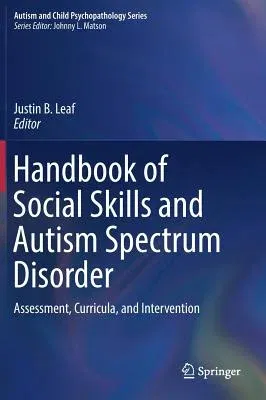This handbook identifies the various social deficiencies widely
associated with children and youth diagnosed with autism spectrum
disorder (ASD). It discusses possible causes as well as the lifelong
effects if these deficiencies are not addressed. The handbook presents
current behavioral and curriculum-based methods for assessing social
deficits. Chapters examine the various interventions that have been used
to improve social skills and behavior, including video modeling,
peer-mediated interventions, and script fading. Chapters also assess
various interventions using empirically based procedures, evaluate the
research of each of these procedures, provide guidelines for treatment
planning, and offer clinical recommendations. The handbook concludes
with future directions for the development of both social behavior and
clinical social skills interventions.
Topics featured in the Handbook include:
- Impairments in social behavior that may result in negative outcomes
such as depression, loneliness, and suicide in individuals with ASD.
- Bullying among youth with ASD.
- Behavioral skills training to promote social behavior of individuals
with ASD.
- The Early Start Denver Model approach to helping young children with
ASD.
- The implementation of social skills groups for individuals diagnosed
with ASD.
The Handbook of Social Skills and Autism Spectrum Disorder is a
must-have resource for researchers, clinicians/professionals, and
graduate students in clinical child, school, and developmental
psychology, behavioral therapy, and social work, as well as such
interrelated disciplines as child and adolescent psychiatry,
rehabilitation medicine/therapy, pediatrics, and special
education/educational psychology.

